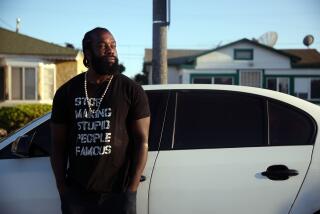Police take a knee. Mayor paints a mural. But activists still see ‘waffling’
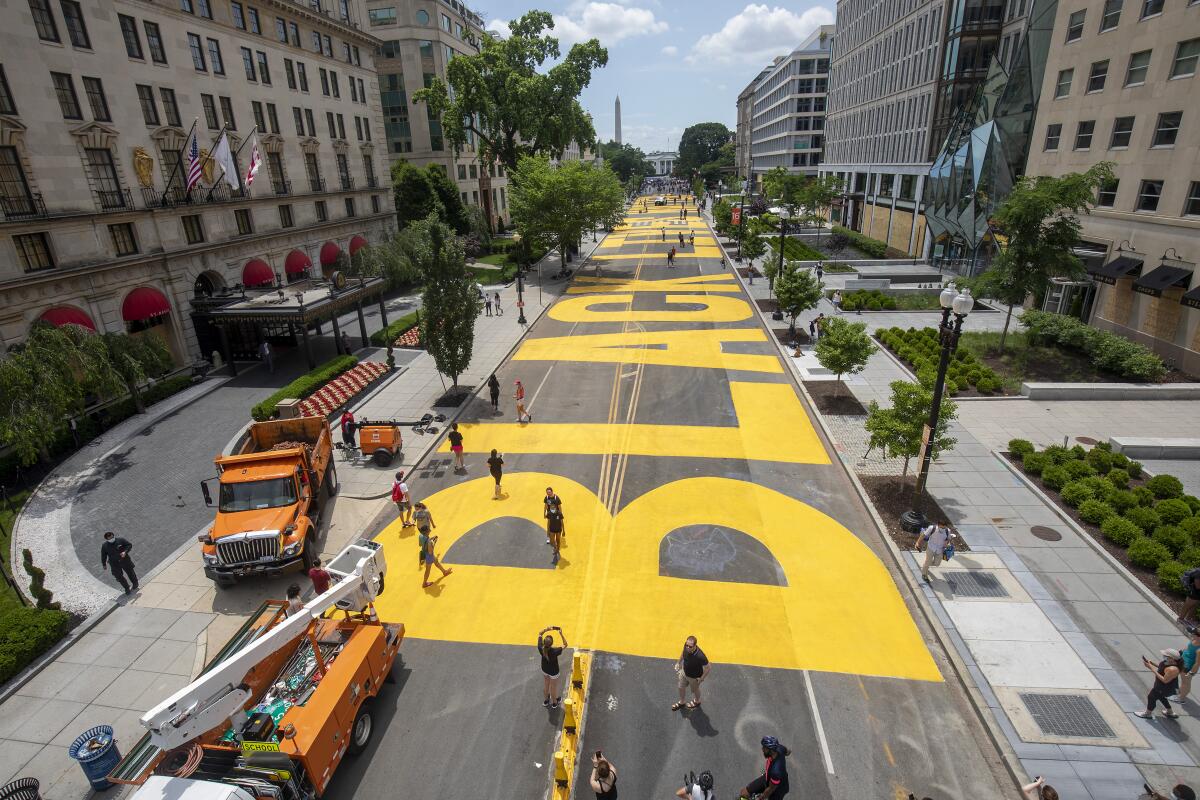
- Share via
WASHINGTON — With gallons of yellow paint, D.C. Mayor Muriel Bowser transformed herself into a champion of nationwide protests against police brutality by directing city workers to write “Black Lives Matter” on the street a few blocks from President Trump’s front door.
But two years earlier, Bowser was sued by the local chapter of Black Lives Matter for her Police Department‘s failure to collect and release data on officers’ interactions with residents — data that eventually showed that police were disproportionately stopping Black people.
The irony of what’s happening with the mayor and activists is a reminder that many of the same leaders who embraced the Black Lives Matter movement following the killing of George Floyd have also been obstacles to overhauling local departments.
Now, activists who have battled local leaders for years are skeptical that these symbolic gestures, whether it’s kneeling with protesters or painting a mural, will lead to deeper changes.
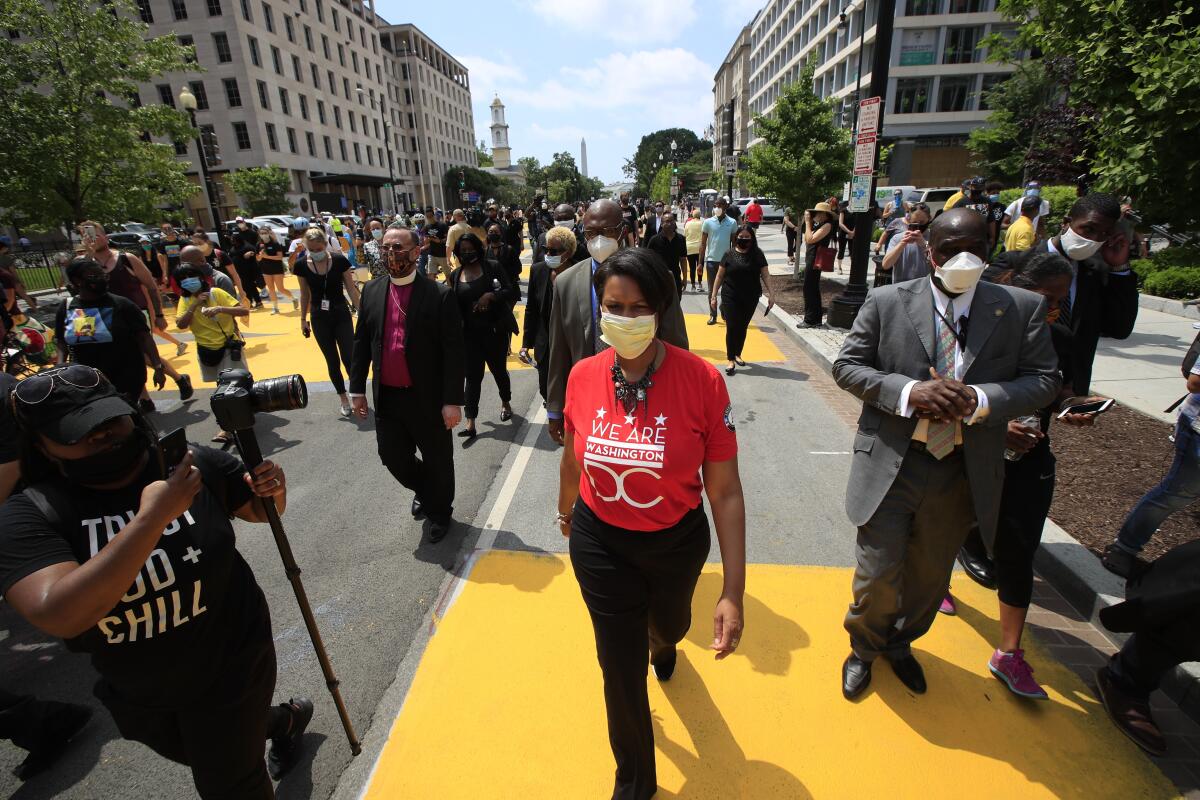
“The people who have had the power to address this have ignored it,” said Scott Roberts, senior director of criminal justice campaigns for the Oakland-based Color of Change. “It took a video of someone literally being strangled to death for over eight minutes, and protests and uprisings all over the country, for politicians to listen to what Black communities have been saying for decades.”
Although the spotlight this week is on Capitol Hill, where the Democratic-controlled House and the Republican-controlled Senate are debating rival police reform bills, activists around the country are increasing pressure on local officials. The outcome of these battles will likely be the ultimate test of the current movement.
“It shouldn’t be hard to acknowledge that Black people are human and their lives matter,” said Keneshia Grant, a political science professor at Howard University in Washington. “It’s important to move past the symbolism.”
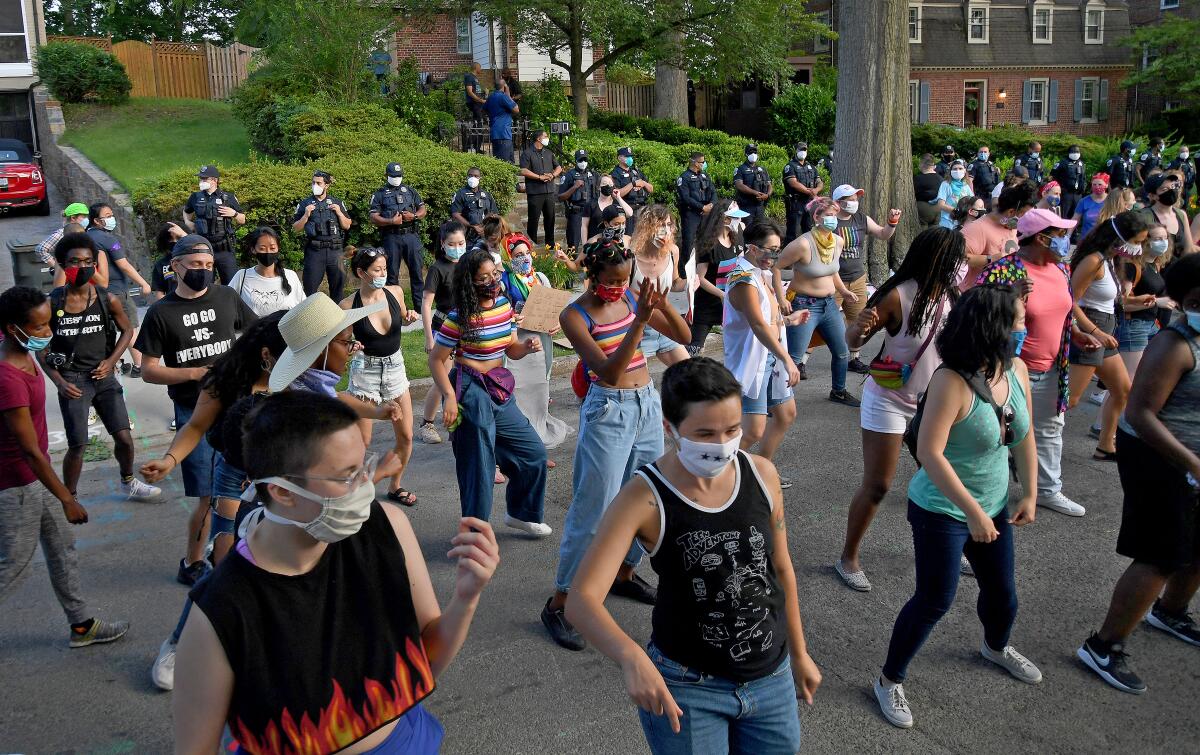
)
Protestors in D.C. have already shifted their attention to Bowser, gathering outside her home to demand she heed their calls for reform with more than just paint. Bowser has proposed increasing the police budget rather than defunding the department and shifting more resources to social services.
“She’s waffling,” said Monica Hopkins, the executive director of the American Civil Liberties Union in D.C., which worked with Black Lives Matter on the lawsuit two years ago. “She’s not taking a stance to actually say, ‘Yes, we understand that there’s a problem with policing in the country, and it needs to be addressed.’”
Black Lives Matter called Bowser’s mural “a performative distraction from real policy changes,” a charge that has been leveled at other leaders around the country.
Earlier this month in Dallas, police Chief U. Reneé Hall and dozens of officers knelt in Floyd’s memory in what a department spokesman called “sign of solidarity.”
But Sara Mokuria, the co-founder of the Dallas-based Mothers Against Police Brutality, didn’t feel a sense of comfort. She remembered how four years earlier officers pinned Tony Timpa, a white man, to the ground as he pleaded for help. He died.
The body camera footage was released last year after a court battle, and it captured the officers joking as Timpa fell unconscious.
“It is a disrespect to taking the knee,” said Mokuria, whose own father was killed by police when she was 10 years old. “You want to take a knee for George Floyd when your officers put a knee on Tony Timpa’s neck, and killed him in very similar circumstances?”
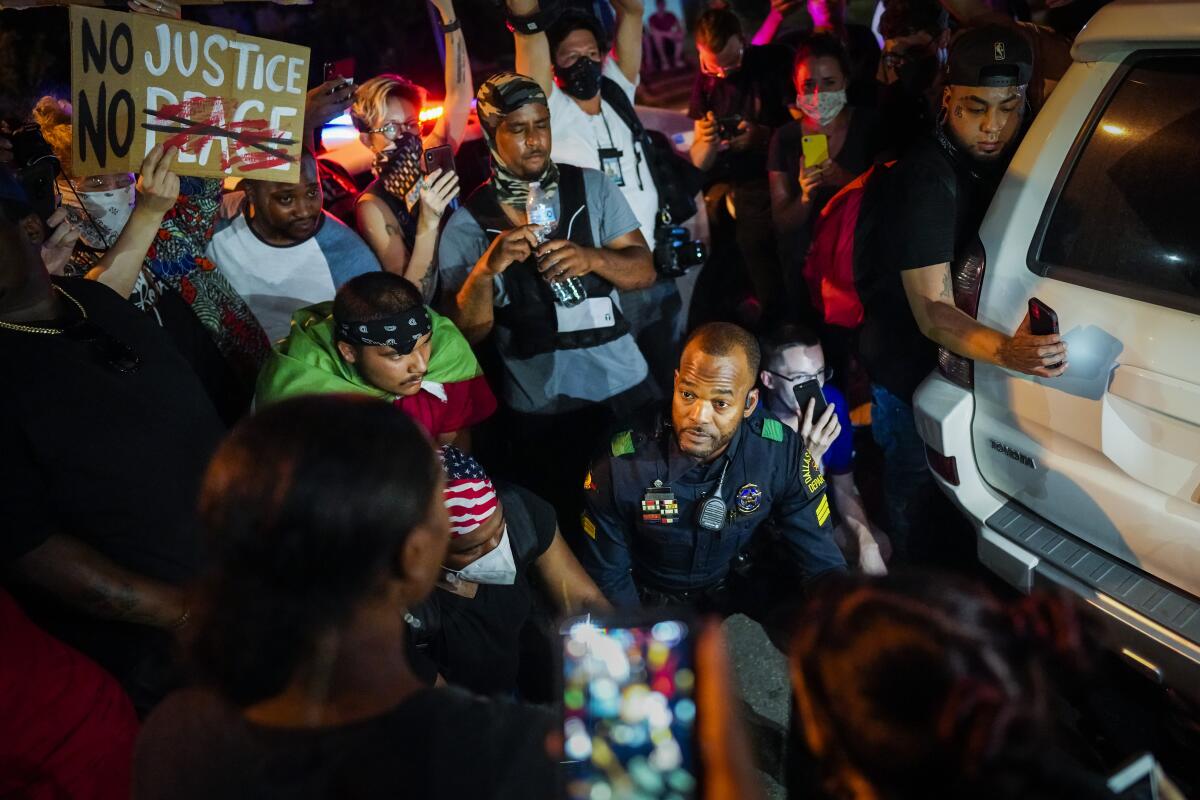
The Dallas Police Department has announced a cascade of reforms in recent weeks, including requiring officers to intervene if they see another officer using excessive force. Mokuria said the changes are overdue and insufficient.
“We have for years offered policy solutions,” she said. “They have fallen on deaf ears.”
Sgt. Warren Mitchell, the department spokesman, said the police had already bolstered its policies before the recent protests, including improving the process for handling complaints and an “early warning system” to track problem officers.
In Kansas City, Mayor Quinton Lucas and his city’s police chief also kneeled with protesters during a moment of silence for George Floyd. Some raised their fists; others held smartphones to record the scene.
But such displays of support have not satisfied civil rights groups, who already believed that the police force was covering up wrongdoing by its own officers. They’ve called for the resignation of the chief, Rick Smith, for what they say is his “abuse of power.” They have also asked for greater local control of a department that is run by a board that is mostly appointed by Missouri’s governor.
“The protesters need to keep the heat on, and we need to be very vigilant about holding the police board accountable until these reforms are actually executed,” said Gwendolyn Grant, head of the Urban League of Greater Kansas City, in an interview with a local radio station.
Dave Jackson, a spokesman for the Police Department, said, “We are receptive to smart changes or reforms that are designed to improve police community relations or lower crime.” He noted that the Missouri Highway Patrol recently began handling investigations into police shootings in Kansas City to provide external oversight.
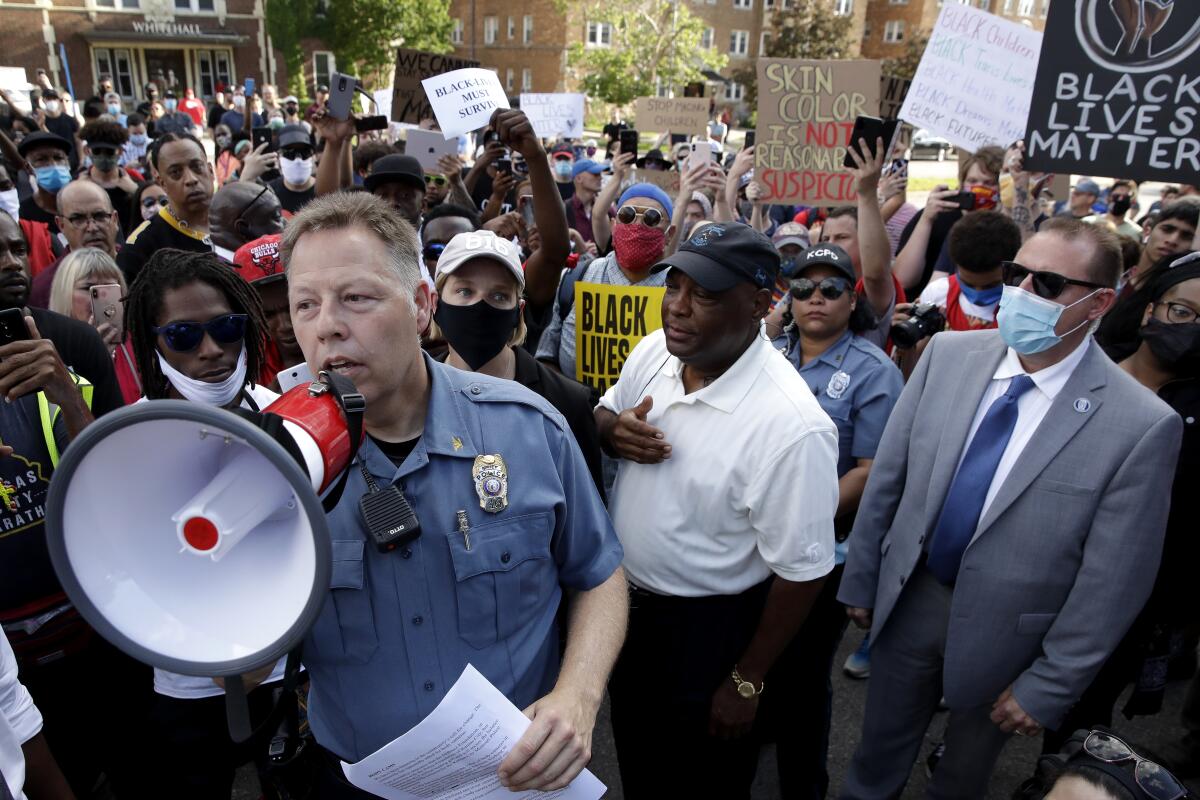
In some cities, protests have forced rapid changes that appeared unlikely only weeks ago. New York City announced that it would begin releasing police disciplinary records, including the names of officers facing misconduct complaints. Los Angeles Mayor Eric Garcetti proposed redirecting $150 million from the police budget to social services. Boston Mayor Marty Walsh plans to do the same with $12 million, roughly one-fifth of his department’s overtime funding.
But other changes appear to be less robust. The Reno Police Department said it would prohibit restraint techniques that restrict breathing and promised “superior oversight and responsibilities.”
But Lonnie Feemster, president of the Reno-Sparks chapter of the NAACP, said he was unsatisfied because some of the new policies already existed in some form already.
“The process is so flawed, it’s got to be more than a line or two,” Feemster said. “What’s in the wording is already in the training, so it begs the question — did the officer forget about the training when these incidents occurred?”
Travis Warren, a spokesman for the Reno Police Department, confirmed that many of the policy changes are already covered in training.
Some advocates say the entire structure of the legal system needs to be changed.
“You can pass all the policies that you want — they can be the best policies in the country — but how do you enforce them?” said Holly Welborn, policy director for the American Civil Liberties Union in Nevada.
Floyd’s death has sparked a shift in public opinion, with polls showing more white people expressing concern about racism and brutality from American law enforcement, and potentially a seismic change in police policies.
Megan Francis, a visiting professor of public policy at the Harvard Kennedy School, said the opportunity for lasting change is growing because the protests have drawn support from people who have typically downplayed or ignored police abuses.
“What has stalled reform in the past is a lack of will from white people,” Francis said.
She added, “The calls are getting louder and are going to continue to get louder until real change happens.”
More to Read
Get the L.A. Times Politics newsletter
Deeply reported insights into legislation, politics and policy from Sacramento, Washington and beyond. In your inbox twice per week.
You may occasionally receive promotional content from the Los Angeles Times.

